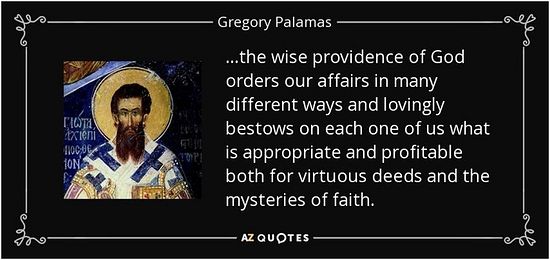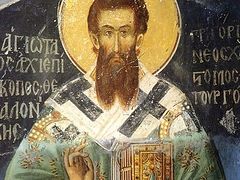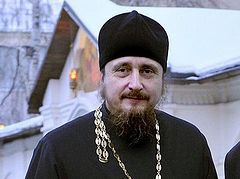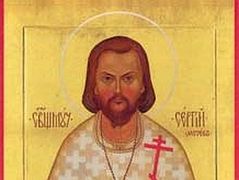Source: Palamas Institute for Orthodox Christian Pastoral Studies
St. Gregory Palamas nicely summarizes the nature of pastoral care. As a quick aside, it also reminds us what we owe each other in Christ but this will have to wait for another time. Here my concern is with pastoral care.
Each of us must discern the providential working out of God’s grace in our own lives. Just as spouses are called to discern God’s providence in each others’ lives parents are to do this for their children. Turning from the family to the Church, priests are responsible for discerning and fostering the vocation of their parishioners and bishops for the members of the diocese. All of this is, necessarily, personal.
This means that pastoral care not just about asking what God wants for the parish or the diocese. Much less can the pastoral life be reduced to slotting people according to a pre-determined list of needs for the diocese or parish. Neither the bishop nor the pastor is not the Church’s “director of human resources” trying to hire the right people for the job. But if not this, then what?
Pastoral care takes as its starting point “the wise providence” of God in the life of the person. The grace that God “lovingly bestows on each one of us” is how He reveals His will for the parish and the diocese (and for that matter, the married couple and the family). It God’s gifts to his parishioners that should sets the pastor’s agenda. It is this, not his own dreams about the “perfect” parish, that should guide the pastor as he guides the parish.
So for example, I’ve always wanted to pastor a congregation that placed a great deal of emphasis on adult education. Nothing wrong with wanting this. In fact I’ve found my life a priest gets easier in direct correlation with my willingness to acknowledge (if only to myself) what I want.
Please note, however, I didn’t say my life gets easier because I get what I want . I’m only saying that it gets easier when I acknowledge what I want. Too often, I’ve found myself frustrated or unhappy as a priest because I couldn’t distinguish between what I wanted and the gifts God gave the community I was leading.
My frustration is the result of many things. Chief among these though is my trying to get people to conform to my expectations for the parish. When I do this I ask the congregation to serve meand not our serving Christ together. Priest and parishioner, pastor and parish, each bring their own expectations to the parish. More importantly, each bring their own unique gifts. We need to be aware of both, but it is the gifts given by God that must guide parish life.
What I’ve come to appreciate is that pastoral care is first a matter of discerning the will of God made manifest in the grace He’s given the parishioners. When I’m faithful—obediently really—to how God has concretely blessed the parish, I find pastoral care becomes if not exactly easier at least more peaceful. Like the poor, stress and strain will always be with us. What’s most important for the pastor (and the bishop, the husband, wife, father and mother) is first to discern the will of God for those entrusted to his care and second to be obedient to God’s will.
Let me recommend two books that I have found very helpful. They are written by the Catholic author (and my friend) Sherry Weddell who in 1993 co-founded of the Catherine of Siena Institute, an affiliated international ministry of the Western Dominican, that she serves as co-Director. The first is Forming Intentional Disciples: The Path to Knowing and Following Jesus. The second is a collection of essays edited by Sherry on pastoral care: Becoming a Parish of Intentional Disciples. I have found them both very helpful in my ministry and my own spiritual life and I would recommend them both.
In Christ,
+Fr Gregory




